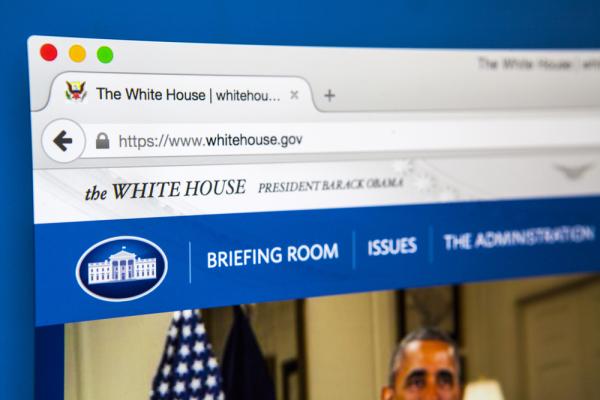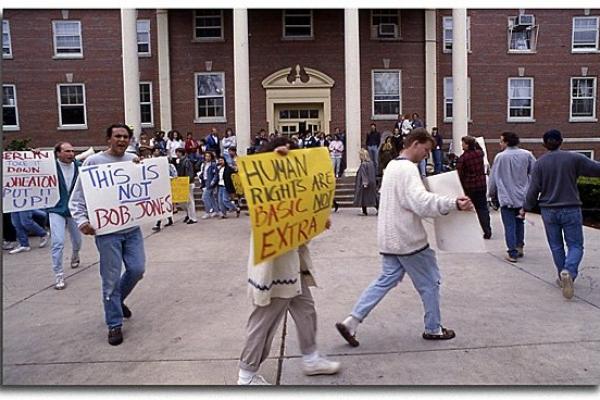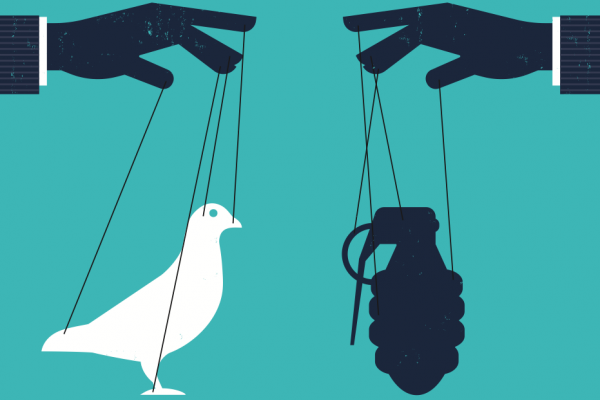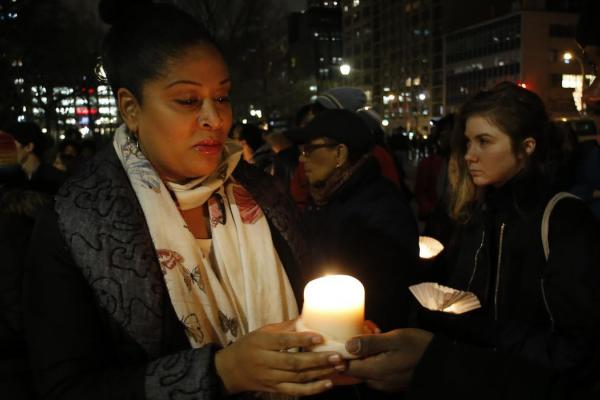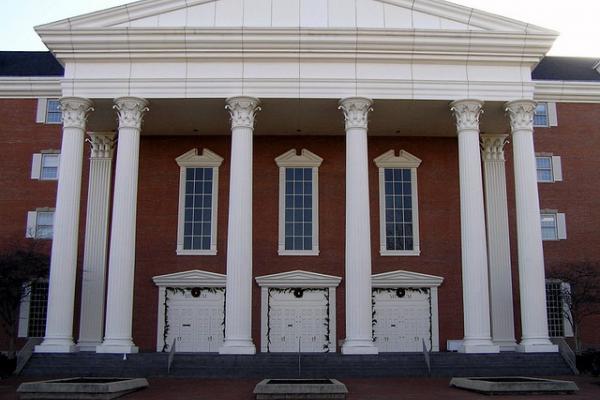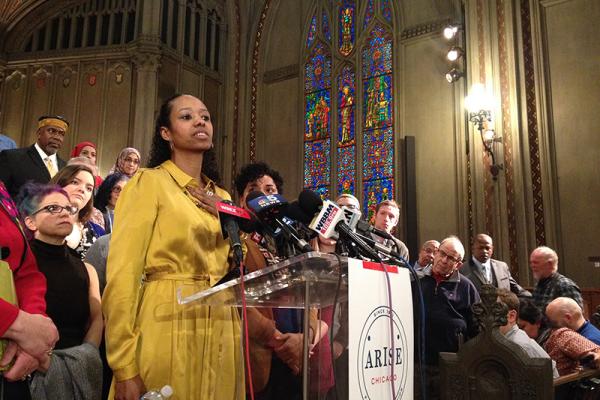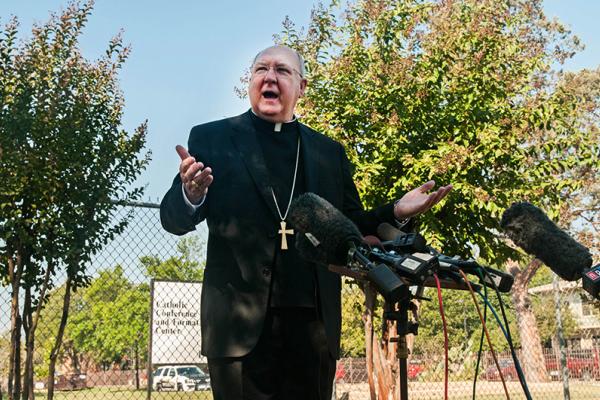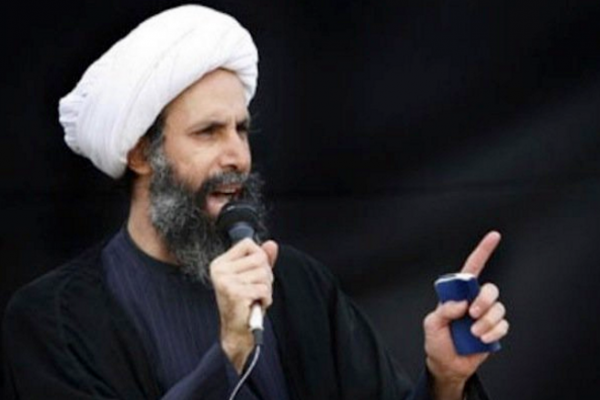Semaj Clark is a determined young man. The Los Angeles teenager’s steadfastness helped him emerge from a childhood punctuated by a string of foster homes and arrests to become an ambassador to troubled youth. Now he’s determined to learn how to get around in his new wheelchair. And he’s resolute that his anti-violence campaign can take root anew in Savannah, Ga., where he’d taken that message of hope and transformation in October — only to find himself with a bullet in his spine.
The meeting comes as nations around the world fight a sometimes losing battle against the highly-skilled online outreach of the Islamic State, which has done a remarkable job of using social media to create recruitment and public relations materials to promote its efforts. Apple, Facebook, and Twitter said Thursday they will have representatives at the meeting.
What do we lose when we trade our humanity for social stereotypes rationalized by religious dogma?
That question is at the heart of an ongoing discussion my son, a junior at Kenyon College, and I are having around the recent suspension of a tenured Wheaton College professor, Larycia Hawkins, for wearing a hijab during Advent and stating publicly (via her personal Facebook page) that Muslims and Christians worship the same god.
Peace studies combine research, analysis, and practice in an attempt to answer questions of what peace actually requires, why accepted wisdom has failed to move civilization away from violence and toward peace, and how people have successfully reformed social, economic, and political relationships to achieve sustainable peace. And through this study, real-world answers are emerging.
To put this in a religious context: overcoming the divisions of race has been central to the church since its beginning, and the dynamic diversity of the body of Christ is one of the most powerful forces in the global church. Our Christian faith stands fundamentally opposed to racism in all its forms, which contradict the good news of the gospel. The ultimate answer to the question of race is our identity as children of God, which we so easily forget applies to all of us. And the political and economic problems of race are ultimately rooted in a theological problem. The churches have too often “baptized” us into our racial divisions, instead of understanding how our authentic baptism unites us above and beyond our racial identities.
Do we believe what we say about the unity of “the body of Christ” or not?
What is revealed to the world at the Epiphany in the Incarnation is that God’s language to the world is embodied Love. Jesus, whom Muslims revere as a prophet, is the message of God’s love for those who were previously deemed beyond love’s boundaries. What Jesus reveals through his life, death, and resurrection is that it is we humans who cast out, and God who draws in. God’s love excludes no one. Jesus is God’s revelation that Love has no boundaries.
Wheaton College professor Larycia Hawkins says she is “flummoxed and flabbergasted” by the evangelical flagship’s decision to begin dismissal proceedings against her for expressing the belief that Muslims and Christians worship the same God.
Speaking at a press conference in the sanctuary of Chicago’s First United Methodist Church on Jan. 6, Hawkins reiterated that she has not wavered from the college’s statement of faith.
“Wheaton College cannot scare me into walking away from the truth (that) all humans — Muslims, the vulnerable, the oppressed of any ilk — are all my sisters and brothers, and I am called by Jesus to walk with them,” she said.
In a blistering critique of what he describes as congressional kowtowing to the “gun lobby,” the Roman Catholic bishop of Dallas is praising President Obama’s new actions on gun control and ripping the “cowboy mentality” that allows “open carry” laws like one that just went into effect in Texas.
“Thank God that someone finally has the courage to close the loopholes in our pitiful gun control laws to reduce the number of mass shootings, suicides and killings that have become a plague in our country,” Bishop Kevin Farrell wrote in a column, posted on his website on Tuesday.
There is a definite pattern of revenge to this story, but it has nothing to do with God. As René Girard has taught us, revenge is human, not divine. Girard claimed that humans are mimetic — and we are particularly mimetic when it comes to violence. Humans imitate violent words and actions, passing them back and forth. But violence escalates because each side in a conflict wants to deliver the final blow. In this sense, the Saudis and the Iranians are just like the majority of human beings.
The turn of each calendar year is often filled with an influx of charitable giving, much of which intends to assist those far beyond the borders of the United States. As rigorous debates surround the ethics and oversight of such foreign assistance endeavors, one of the more innovative contributions to this important conversation was produced by South Africa's renowned theologian, the late Steve de Gruchy. In consideration of the Magi and their Epiphany visit with Joseph, Mary, and the newly born Jesus in Matthew 2:1-12, de Gruchy offers a striking interpretation of the biblical text and considers its direct relationship with international relief efforts. As private giving directed to foreign aid continues to grow ( from $8.4 billion in 2000 to $19.1 billion in 2012 ), de Gruchy shows how benevolent intent can lead to oppressive impact, and Epiphany provides important wisdom to navigate the complexities of our policies and practices.
